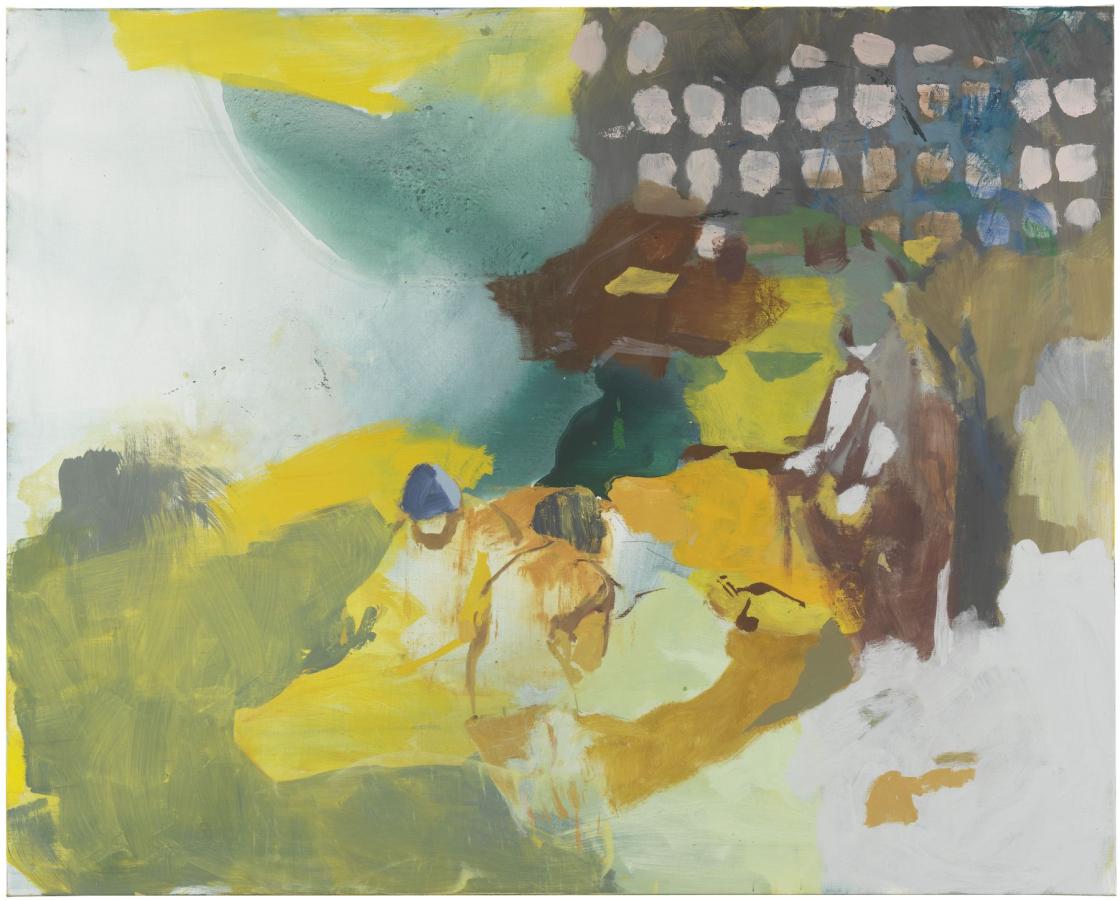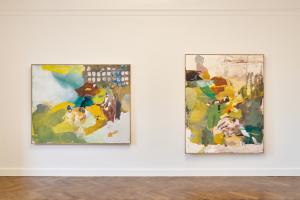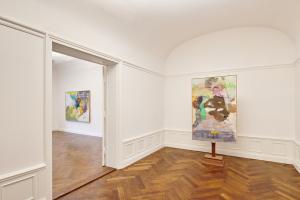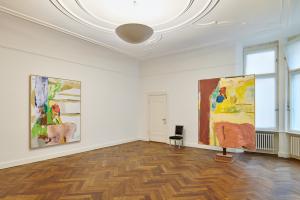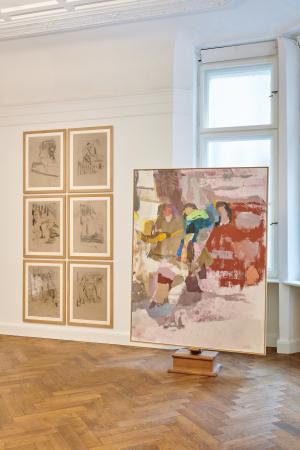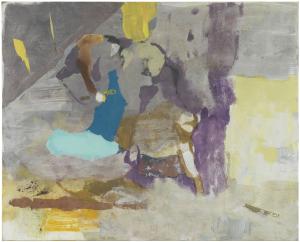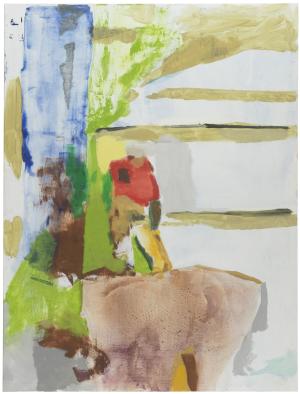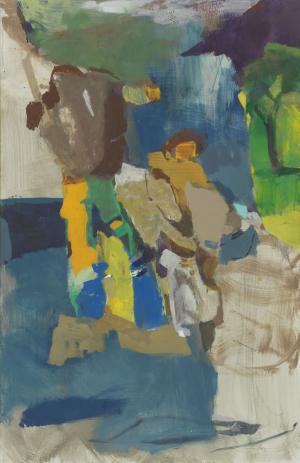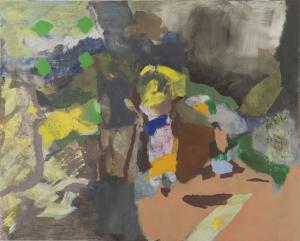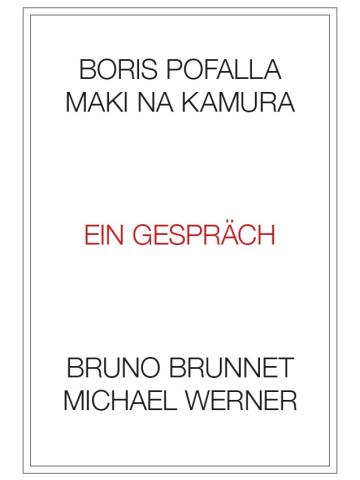Double exhibition Contemporary Fine Arts, Galerie Michael Werner
Press:
Röntgenblicke, Tagesspiegel vom 07.10.23
Berlin Art Week 2023, FAZ vom 16.09.23
Ein Kreis schließt sich, Berliner Morgenpost, vom 10.09.23
Questionnaire, Berlin Art Week 2023, 18.08.23
Press release
Modernism confronted painting with the statement that it was of no social consequence. No theory has since been able to explain why paintings still get produced and why this should also be of significance for the last of the last. Painting has nevertheless waged a very successful battle for survival and in the 20th century this can be attributed to the special strategy artists adopted of lending contemporary shape to the traditional means of painting. The discipline draws its legitimation from the inexhaustible potential offered by color, surface, lines, light, and mass to create new images that have never been seen before. And however assertive this strategy was in the metropolis of Paris, after 1960 it found a new home in West Berlin in Michael Werner’s gallery and as of the late 1990s at Contemporary Fine Arts Galerie run by Nicole Hackert and Bruno Brunnet.
Maki Na Kamura is now presenting her new paintings in the tradition of these galleries. In an act of great concentration, she has taken the pressure on her profession to legitimate itself as a problem and come up with a remarkable solution to it. Adapted to meet the current situation, the dream-like (or nightmarish) colorfulness of her palette is how Maki Na Kamura signals that painting must at long last awaken from its slumbers, having now dozed for far too long.
She fundamentally aligns painting to mark-making. The marks are the always clearly contoured, flattish color units with their differing structures using which she arranges the overall image. In the form of the mark, Maki Na Kamura invents a strictly ambivalent unit of signification that over and above the six traditional constituents of pictures brings a seventh contemporary one into play, namely the viewers with their ability to associate. She creates a hitherto unknown, virtual representative potential for images by virtue of which painting can resurrect itself using its traditional means.
To this end, Maki Na Kamura has assembled an extensive catalog of body marks that, on the one hand, tie the figures she devises back to traditional painting and, on the other, opens them out to contemporary figurative phenomena. This generalizing strategy enables her to synthesize new figures from those of Luca Signorelli and K-Pop dancers. By means of this contemporary figuration, Maki Na Kamura re-establishes the epic character of classical painting, the narrative of which is albeit left to the viewer to decide. The viewers can gauge the virtual content of the images out of the corner of their eyes, i.e., from the place where all humans still have the instinct to complete the gestalt of images. Maki Na Kamura’s new paintings derive their entire irrational force spontaneously, when you walk past them. And then walk back again, astonished.
